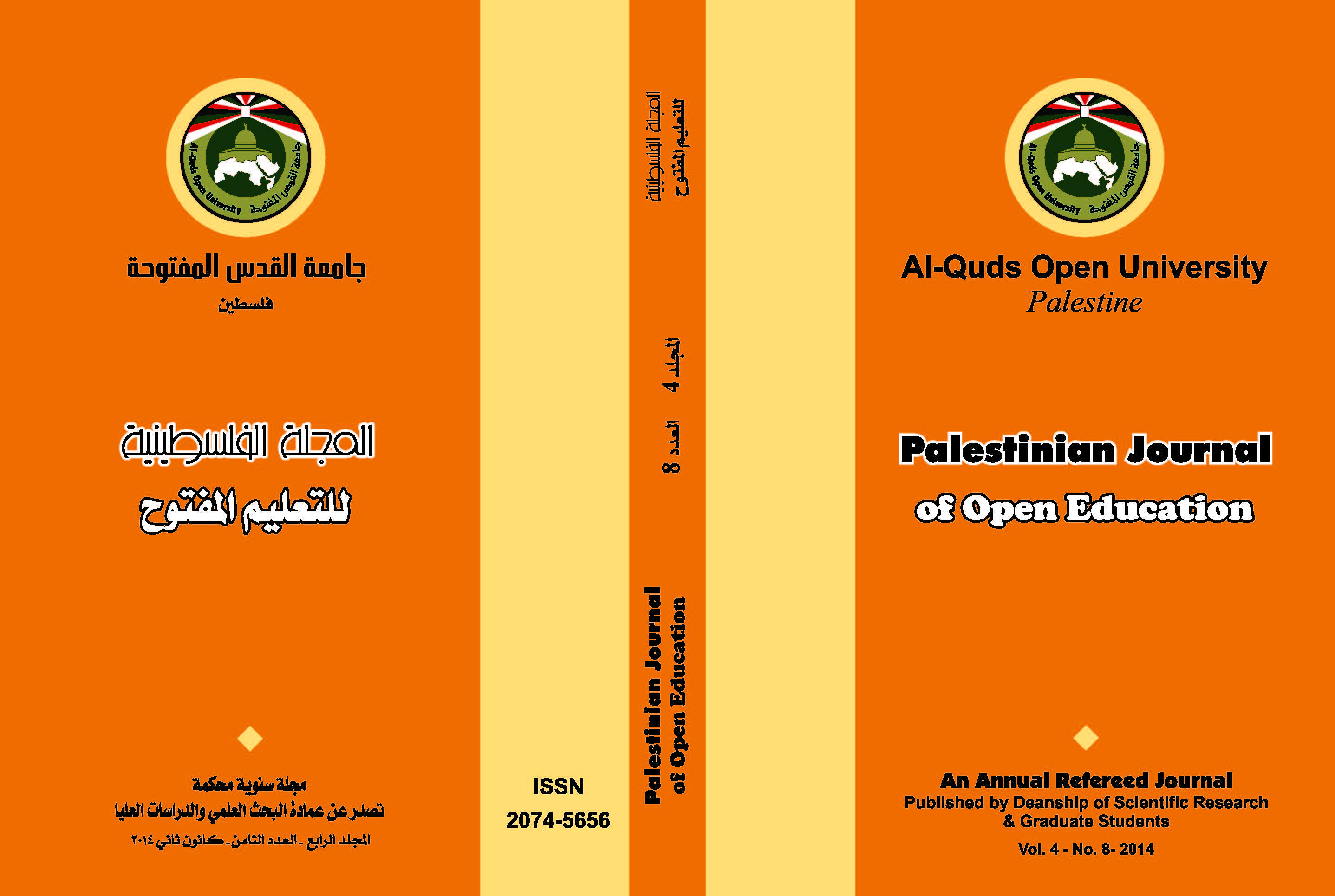The Effectiveness of the Use of Blended Learning for Improving Listening Comprehension for Non-Native Learners of Arabic (3rd Level) and their Attitudes towards It.
Keywords:
blended learning, listening comprehension, Arabic LanguageAbstract
The research aimed to measure the effectiveness of the use of blended
learning for improving listening comprehension for non-native learners
of Arabic (3rd level) and their attitudes towards it. Therefore, the quasiexperimental
approach was used to reveal the effectiveness of using blended
learning to develop listening comprehension skills of Arabic learners and
their attitudes towards blended learning.
Therefore, two tools were used: listening comprehension examination,
and attitude measurement towards using blended learning using Wilcoxon,
the results of the research showed statistically significant differences at the
level of (α ≤ 0.01) between pre and post performance scales, which confirms
the effectiveness of the use of blended learning in listening comprehension
skills in the test as a whole, and in the skill of listening (literal, interpretative
and deductive) for non-native learners of Arabic. The results also showed
statistically significant differences at the level of (α ≤ 0.01) in trends of the
research sample towards blended learning The research concludes with
relevant recommendationsDownloads
Published
How to Cite
Issue
Section
License
- The editorial board confirms its commitment to the intellectual property rights
- Researchers also have to commit to the intellectual property rights.
- The research copyrights and publication are owned by the Journal once the researcher is notified about the approval of the paper. The scientific materials published or approved for publishing in the Journal should not be republished unless a written acknowledgment is obtained by the Deanship of Scientific Research.
- Research papers should not be published or republished unless a written acknowledgement is obtained from the Deanship of Scientific Research.
- The researcher has the right to accredit the research to himself, and to place his name on all the copies, editions and volumes published.
- The author has the right to request the accreditation of the published papers to himself.







2.png)






_2.png)

